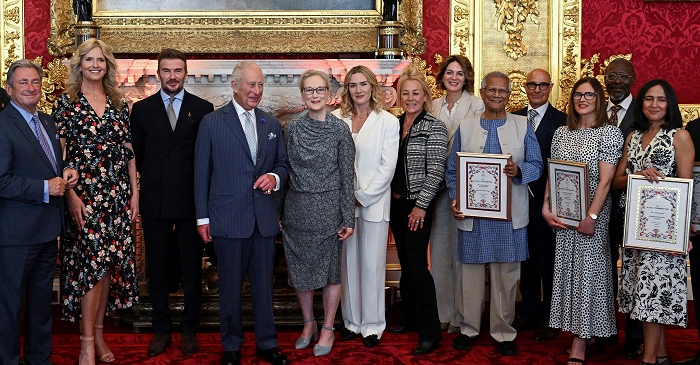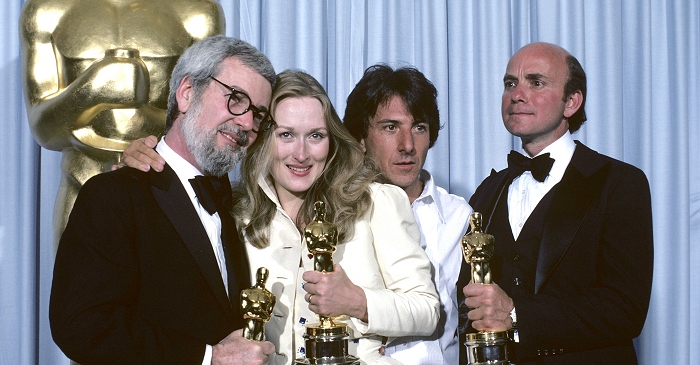|
Simply Streep is your premiere online resource on Meryl Streep's work on film, television and in the theatre - a career that has won her acclaim to be one of the world's greatest living actresses. Created in 1999, Simply Streep has built an extensive collection over the past 25 years to discover Miss Streep's body of work through thousands of photographs, articles and video clips. Enjoy your stay and check back soon.
|
“I came here to forgive, but all I can do is taking pleasure in your misery. Knowing that I would get to see you die, more terribly than I did”. In an Emmy-winning performance in “Angels in America”, Meryl Streep played the ghost of Ethel Rosenberg, visiting – and haunting – lawyer Roy Cohn on his deathbed. What lies behind this tragic-coming episode of the award-winning mini-series is a tragic and still controversial episode of the 1950’s anti-communist hysteria.
Ethel Rosenberg was born September 28, 1915 in New York City. She attended a religious school and then Seward Park High School, where she graduated at the age of only 15. Ethel became a clerk for a shipping company immediately after finishing school. She remained at this job for the next four years until she was let go because of her role as the organizer of a strike of 150 women workers. Ethel was not just an activist at work, she was also interested in politics. Ethel joined the Young Communist League and eventually became a member of the American Communist Party. In addition to her clerk job, Ethel enjoyed singing, alone as well as with a choir. Ethel was waiting to go on stage to sing at a New Years Eve benefit when she first met Julius Rosenberg. The couple was married not long afterwards in the summer of 1939. Although mentally tough, Ethel Rosenberg’s body was weak. She was not healthy enough to work after the Rosenberg’s were married. Instead, Ethel stayed home with their two sons Michael and Robert. By the summer of 1950, Ethel’s younger brother, David Greenglass, had named Julius as a participant in the spy ring. The FBI questioned her husband and eventually placed him under arrest. On August 11, 1950, Ethel Rosenberg was herself arrested.
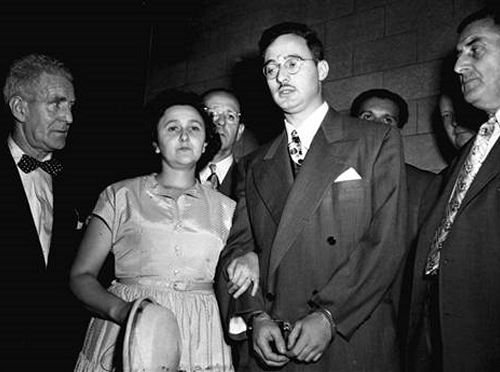
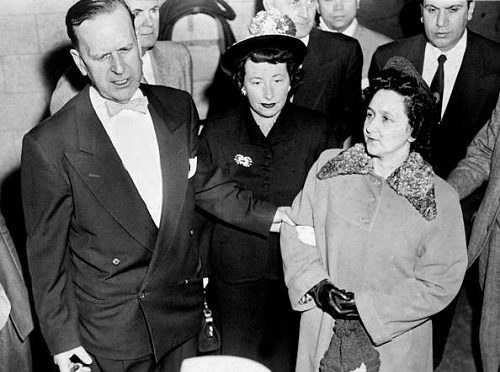
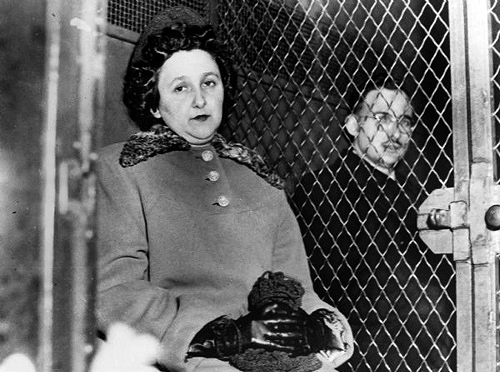
Ethel Rosenberg and her husband, Julius were convicted of passing nuclear weapons secrets to the Soviet Union and were executed in 1953. Since then, decrypted Soviet cables have appeared to confirm that he was a spy, but doubts have remained about her role. At the Rosenbergs’ trial, the key testimony against Ethel Rosenberg came from her brother and sister-in-law, David and Ruth Greenglass. They testified that Ethel Rosenberg had typed stolen atomic secrets from notes provided by David Greenglass. The testimony provided the direct involvement that the jury needed to convict and that the judge needed to sentence Ethel to death. In recent years, David Greenglass recanted his testimony about the typing. Historians spotted a major omission in Ruth Greenglass’ pretrial grand jury testimony: She did not testify that she saw Ethel Rosenberg type up the secrets. In fact, Ruth Greenglass testified that she herself wrote out the secrets in longhand. Soviet cables described material received from the Rosenbergs as being in longhand. Ruth Greenglass’ pretrial testimony confirms that her husband’s trial claim was a fabrication, said Georgetown University law professor David Vladeck, who helped gain release of the transcripts.
Roy Cohn, as portrayed by Al Pacino in “Angels in America”, was an American conservative lawyer who became famous during the investigations by Senator Joseph McCarthy into alleged Communists in the U.S. government, and especially during the Army-McCarthy Hearings. He was also an important member of the prosecution team for the trial of Julius and Ethel Rosenberg. Cohn’s direct examination of Ethel’s brother David Greenglass produced the testimony (in which the brother later claimed he perjured himself) that was mostly responsible for the Rosenbergs’ conviction and execution. Cohn took great pride in the Rosenberg case, and claimed to have played an even greater part than his public role: he said in his autobiography that his own influence had led to both Saypol and Judge Irving Kaufman (a family friend) being appointed to the case, and that Kaufman had imposed the death penalty on Cohn’s personal advice. A homosexual in the closet, Cohn was diagnosed with AIDS in 1984 and attempted to keep his condition secret while receiving aggressive drug treatment. He insisted to his dying day that his disease was liver cancer. A controversial man in life, Cohn inspired many dramatic fictional portrayals after his death. Probably the most famous is his role in Tony Kushner’s Angels in America: A Gay Fantasia on National Themes, in which Cohn is portrayed as a self-hating, power-hungry hypocrite who is haunted by the ghost of Ethel Rosenberg.
While not a biopic or an in-depth look at Rosenberg’s life, Meryl Streep played “the ghost of Ethel Rosenberg” in Mike Nichols’ acclaimed television adaptation of “Angels in America” in 2003. While speaking to Interview Magazine to promote its release, Streep said “I just thought her story was so horrific that there had to be something else. Plus she had God on her side, so there’s something to smile about there. But I don’t know where these things come from. She was just there at the first reading.”






